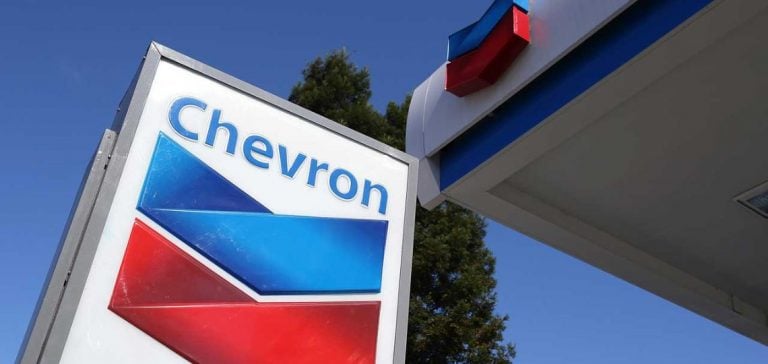Chevron and the Nigerian National Petroleum Corporation (NNPC) have announced a new oil discovery in the Niger Delta, a region where many international oil companies (IOCs) are choosing to withdraw. This discovery was made by the Meji NW-1 well in Petroleum Mining Lease 49 (PML 49), located in the shallow offshore area of the Western Niger Delta.
The well reached a depth of 8,983 feet and encountered 690 feet of hydrocarbons within Miocene sands, thus extending the producing Meji field. Drilling operations were completed on October 2, according to Chevron. This discovery aligns with Chevron’s overall exploration strategy to find new resources that extend the life of existing productive assets and deliver production with shorter development cycle times.
Chevron’s Continued Commitment in Nigeria
Chevron holds a 40% stake in PML 49, while NNPC owns the remaining 60%. Initially known as OML 90, the lease was recently converted in accordance with the new Petroleum Industry Act of 2021. Current production from the Meji field is estimated at 17,000 barrels of oil equivalent per day (boe/d), well below the peak of 51,000 b/d in 2005, due to resource depletion and lack of investments.
Context of IOC Withdrawal
While Chevron continues to invest in the Niger Delta, other international oil companies such as Eni, Shell, ExxonMobil, Equinor, and TotalEnergies are withdrawing or selling their local assets. Eni has ceded its onshore and shallow water operations to the Nigerian company Oando, while Shell has sold its onshore operations to the Renaissance consortium composed mainly of local companies. These sales have often faced delays in approvals and official opposition.
Impact on the Nigerian Oil Market
Chevron’s persistence in the region has been praised by the Nigerian government and NNPC CEO Mele Kyari. On September 9, NNPC announced that Chevron was targeting a “significant” production boost to 165,000 b/d by the end of 2024 from five key licenses, following the conversion of the blocks in accordance with the terms of the Petroleum Industry Act (PIA).
In January, Chevron also acquired a stake in Oil Prospecting License 215 – an exploration block – in the offshore Niger Delta, thereby consolidating its position as Nigeria’s third-largest oil producer with stakes in 62 assets, including the prolific Agbami field at 90,000 b/d and the Escravos oil projects.
Challenges in the Nigerian Oil Sector
Nigeria has seen its oil production drop from 2.45 million b/d in 2005 to 1.46 million b/d today, according to the Platts OPEC Survey by S&P Global Commodity Insights. This decline is due to underinvestment, a lack of exploration activity, field maturation, as well as theft and sabotage of oil installations and pipelines. The Niger Delta also faces issues of spills and security, with up to 300,000 b/d of crude still missing, according to Nigerian lawmakers in April.






















